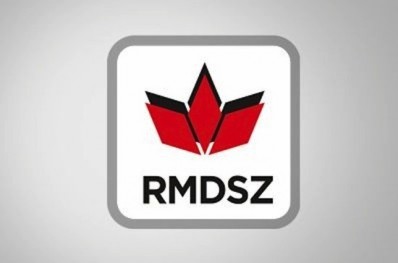The Amendment of the Romanian Constitution
The Democratic Alliance of Hungarians in Romania advocates for the modification of the term “National State” foreseen in Article One of the Romanian Constitution, but NOT for the changing of the terms “unitary” and “indivisible”. Although Article 152 forbids the amendment of any of these attributes of the Romanian State, nothing should prevent a public debate on such issues in a democracy.
The first paragraph of Article One of the Romanian Constitution goes as follows: “(1) Romania is a sovereign, independent, unitary and indivisible National State.” This is the reason why, ethnic Hungarians in Romania feel excluded from the Constitution of the State where they had lived and worked in for centuries. The current public debate on the rights of ethnic Hungarians to hoist or not their historical regional flags, whilst other Romanian regional communities may do so unbothered, seems to confirm the fears of ethnic Hungarians to be regarded by the majority as second rank citizens, not having at all the same rights as their fellow ethnic Romanian citizens.
As legitimate representative of the ethnic Hungarian community in Romania - which accounts for about 6% of the total population of the country - the Democratic Alliance of Hungarians in Romania argues that a State with almost 20 recognised national minorities can hardly be considered a Nation/National State and this is why the term needs to be changed. However, in the context of the upcoming creation of new regions in Romania, many voices accuse the ethnic Hungarians that they would intend to split off territory from the Romanian state. These voices argue that in order to prevent that, the provisions of Article One describing the Romanian state as unitary, indivisible and national should by no means be changed. Although the Democratic Alliance of Hungarians in Romania has expressly specified publicly on several occasions, that it does not request the changing of any of the terms “unitary” and “indivisible”, Romanian majority society keeps blaming ethnic Hungarians for their alleged wish to divide the Romanian State territory under the veil of their request for the creation of a region where ethnic Hungarians would live in a compact local majority.
Anyway, as Article 152 forbids the amendment of any of these attributes of the Romanian State, first the Constitution itself would have to be amended to allow for such modifications, then it should enter into force and only afterwards the wording “National State” could be changed. Hungarians argue nonetheless, that this should not be interpreted as an interdiction to introduce the topic of changing the Constitution into the public debate – as this is the freedom for which ethnic Hungarians and Romanians have stood up for together in the revolution against communist dictatorship in 1989.
The people of a democratic Romania must have the right to discuss about and to modify their Constitution. It is not acceptable that ethnic Hungarians who have been here for centuries, who pay their taxes and are loyal citizens, be considered by default a security threat for the Romanian State, as they strive to be treated equally in all aspects of individual and community life with their fellow Romanian citizens, all the more that neither their legitimate representatives in the Romanian Parliament, nor Hungarian State officials have ever expressed any territorial claims towards the Romanian State.

